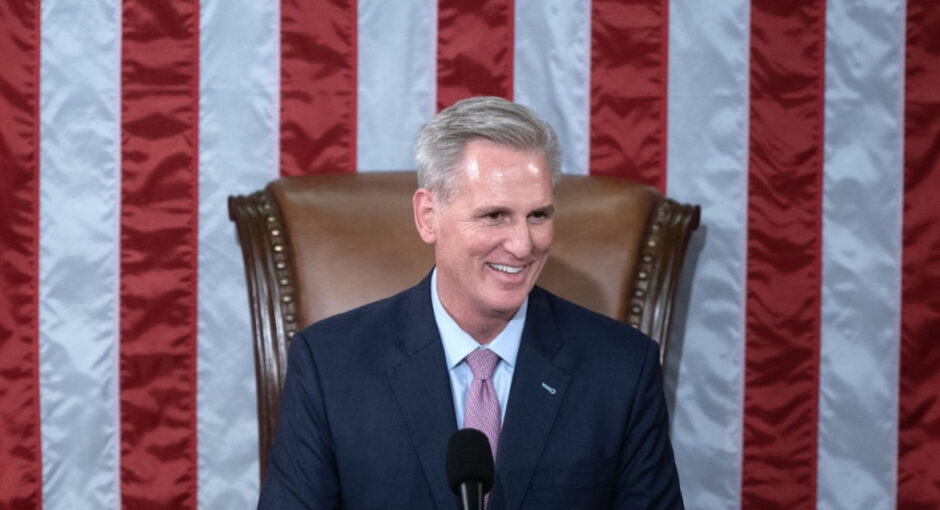The members, GOP chairs, and top-ranking Democrats of U.S. House committees for the 118th Congress still had not been formally announced this morning, three days after Republicans chose Rep. Kevin McCarthy (R-Calif.) to be House speaker.
It took four days and 15 ballots for Republican members-elect to install McCarthy early Saturday morning. His election cleared the path for members-elect to be sworn in, for the Republican majority to approve the chamber’s rules for this session, and for the Republican steering committee and full GOP caucus to approve the party’s committee assignments and chair selections.
The Republican steering committee reportedly began meeting yesterday to decide who would chair committees. No formal announcements had been made as of early this morning.
The website of the Energy & Commerce Committee, which has jurisdiction over the 340B program and Medicaid, shows Rep. Cathy McMorris Rodgers (R-Wash.) as chair. She was the committee’s ranking Republican member during the 117th Congress.
McMorris Rodgers, along with Sen. Richard Burr (R-N.C.), who until his recent retirement served as ranking Republican on the Senate Health, Labor and Pensions (HELP) Committee, requested a Government Accountability Office study about the March 2022 law that enables hospitals to maintain or regain their 340B eligibility despite having fallen below the minimum required Medicare disproportionate share (DSH) adjustment percentage due to COVID-related changes in patient mix.
As part of the GAO study, the watchdog agency wants to know if 340B hospitals give low-income uninsured patients a break on drug prices at their contract and in-house pharmacies.
Why the GAO study is asking hospitals about sharing 340B drug savings with poor patients without insurance is unknown. Lowering what such patients pay for drugs is not a 340B program requirement (although many 340B covered entities say they do so). Nor is it a condition for a hospital to get its 340B eligibility restored through the end of this year under the new law.
It is possible that McMorris Rodgers and Burr asked GAO to look into this specific matter.
The chairs of the E&C health and oversight subcommittees also have not yet been formally announced. Rep. Brett Guthrie (R-Ky.) is expected to be named health subcommittee chair and Rep. Morgan Griffith (R-Va.) oversight committee chair. Both were those panels’ ranking members last session. Guthrie said during a public appearance last month that he thinks hearings and legislation on 340B are needed.
Rep. Jason Smith (R-Mo.) issued a statement yesterday saying he has been selected to serve as chair of the Ways & Means Committee, which has jurisdiction over Medicare.
The House Democratic Caucus last month elected Rep. Frank Pallone (D-N.J.) ranking Democratic member of the E&C Committee. He was its chair during the last two sessions of Congress.
The Senate is in recess until Jan. 23. Sen. Bernie Sanders (I-Vt.) is expected to be named chair and Sen. Bill Cassidy (R-La.) ranking Republican member of the HELP Committee. Cassidy is a long-time critic of certain aspects of the 340B program including its growth and has introduced legislation that would shrink the program and add additional restrictions. In 2021, he opposed the nomination of current U.S. Department of Health and Human Services Secretary Xavier Becerra due to what he described as Becerra’s lack of familiarity with 340B program.
In 2018, Cassidy sponsored legislation to impose a two-year moratorium on new disproportionate share hospital and child site registration in 340B. His bill also would have made it harder for DSH and children’s hospitals to register child sites after the moratorium, and would have required both types of hospitals to report their total revenues from 340B drugs, their patient mix broken down by payment source and child site, charity care expenses by child site, percentage of revenues at the child site level derived from infused or injected drugs, and all of the hospitals’ 340B vendors.
Cassidy had tough questions for 340B provider and government representatives that testified on the 340B program before the HELP Committee in 2018.
New Committee to Investigate COVID-19’s Origins
In other news, the House on Monday on a mostly party-line vote approved rules for the chamber for this session including establishing a select investigative committee on COVID-19’s origins, use of pandemic relief funds, and “the implementation or effectiveness of any federal law or regulation applied, enacted, or under consideration to address the coronavirus pandemic and prepare for future pandemics.”


